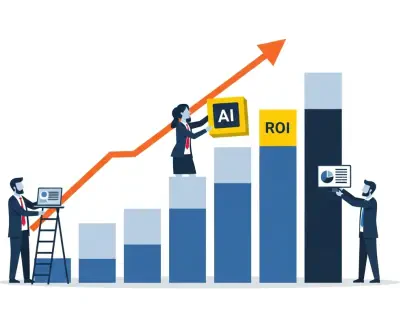In an era where software development drives global innovation, a staggering 92% of developers now rely on AI coding assistants to enhance their workflows, according to recent industry reports, signaling a seismic shift in how code is created, tested, and deployed. At the forefront of this transformation stands GitHub Copilot, a tool that has evolved from a mere autocomplete feature to an active collaborator in development processes. This report delves into how AI is reshaping the industry, examining the current landscape, key trends, challenges, and the future of coding in a world increasingly defined by human-AI partnerships.
The Current State of AI in Software Development
The software development industry today is characterized by the rapid integration of AI tools, with GitHub Copilot leading the charge as a cornerstone of modern workflows. Developers across diverse sectors leverage this technology to streamline repetitive tasks, allowing greater focus on complex problem-solving. The tool’s ability to suggest code, fix bugs, and even open pull requests has redefined efficiency standards, making it indispensable for teams aiming to stay competitive in a fast-paced digital economy.
Beyond individual productivity, AI-driven coding assistance has transformed collaborative workflows on a global scale. Platforms integrating such tools foster seamless interaction among distributed teams, breaking down barriers of time zones and skill levels. This shift is evident in the way multinational corporations and startups alike adopt AI to accelerate project timelines while maintaining high-quality outputs, reflecting a broader trend of technology leveling the playing field.
Key players like GitHub dominate this space, though competitors are not far behind, driving innovation through continuous updates and feature enhancements. The competitive landscape is shaped by a race to offer the most intuitive and secure AI solutions, with companies vying to capture market share in an industry where adaptability is paramount. As AI adoption permeates IT sectors worldwide, its influence on development practices grows, pushing traditional methodologies toward more automated and data-driven approaches.
Key Trends and Market Insights in AI-Driven Coding
Emerging Trends Shaping Software Development
A notable trend in the industry is the transition from basic AI automation to active collaboration within development environments. Tools like GitHub Copilot now contribute directly to workflows by handling routine maintenance and suggesting optimized solutions, fundamentally altering the developer’s role from coder to strategist. This evolution underscores a growing trust in AI to manage foundational tasks with precision.
Advanced AI algorithms further amplify coding efficiency by learning from vast datasets to predict and address potential issues before they arise. These technologies enable developers to tackle intricate challenges, such as system architecture design, with unprecedented speed. The impact is particularly pronounced in sectors requiring rapid iteration, where staying ahead of technological curves is a critical advantage.
Developer behaviors are also shifting, with a marked reliance on AI for both mundane tasks and creative problem-solving. This dependency opens new opportunities for tools to address complex software creation hurdles, such as cross-platform compatibility and real-time debugging. As these trends mature, they pave the way for AI to become an integral partner in innovation, reshaping how projects are conceptualized and executed.
Market Data and Future Projections
Data from the latest industry analyses, such as the GitHub Octoverse report, reveals that developers using AI tools experience a 55% efficiency boost in routine tasks, a figure that highlights the tangible benefits of automation. With 92% of surveyed professionals already incorporating such assistants into their daily work, the penetration of AI in coding is near-universal among tech-forward organizations. These statistics underscore the transformative power of solutions like Copilot in optimizing time and resources.
Looking ahead, projections indicate that AI adoption in software development will continue to grow exponentially from this year to 2027, driven by ongoing advancements and broader accessibility. Market analysts anticipate that by the end of this period, nearly all enterprise-level projects will integrate AI tools as standard practice, reflecting a deepening reliance on automated systems. This trajectory suggests a future where manual coding becomes a niche skill rather than a core competency.
A forward-looking analysis points to GitHub Copilot and similar platforms significantly influencing market dynamics by redefining developer roles. As AI takes on more operational responsibilities, professionals are expected to pivot toward oversight and creative leadership, focusing on innovation over execution. This shift will likely reshape hiring trends, prioritizing skills in AI management and strategic planning over traditional programming expertise.
Challenges in Adopting AI for Coding
Despite its benefits, integrating AI into coding practices presents several barriers that organizations must navigate. Technological limitations, such as the inability of current systems to fully grasp nuanced project requirements, often hinder seamless adoption. Additionally, skill gaps among developers unfamiliar with AI tools can slow implementation, necessitating significant investment in upskilling initiatives.
Concerns about over-reliance on AI also loom large, with risks of bugs in generated code posing quality control challenges. Such issues can undermine project integrity if not addressed through rigorous testing protocols, highlighting the need for balance between automation and human judgment. Developers must remain vigilant to ensure that speed does not compromise the reliability of deliverables.
Market-driven pressures add another layer of complexity, as clients increasingly demand rapid turnaround times without sacrificing accuracy. This expectation creates tension for teams striving to leverage AI while maintaining stringent standards. To overcome these obstacles, strategies like enhanced training programs and robust review processes are essential, ensuring that AI serves as a complement to human expertise rather than a standalone solution.
Security, Trust, and Regulatory Considerations
Security remains a critical pillar in AI-driven development, with tools like GitHub Advanced Security playing a vital role in vulnerability detection and mitigation. By embedding protective measures into coding workflows, such features help safeguard projects against emerging threats, a priority in an era where data breaches can devastate reputations. This focus on prevention is reshaping how developers approach risk management.
Digital trust has ascended as a cornerstone of client relationships, particularly following high-profile cyberattacks that have eroded confidence in IT services. Clients now prioritize verifiable security over cost savings, pushing providers to demonstrate resilience through transparent practices. This shift underscores the importance of trust as a competitive differentiator in a crowded market.
The regulatory landscape further complicates AI tool usage, with data privacy laws and compliance standards imposing strict guidelines on development processes. Navigating these requirements demands meticulous attention to detail, ensuring that innovations do not inadvertently violate legal frameworks. Transparency in development activity, coupled with robust security measures, significantly bolsters industry practices and reinforces client confidence in AI-driven solutions.
The Future of Coding with AI Collaboration
Looking toward the horizon, AI is poised for deeper integration into team workflows, with tools like GitHub Copilot becoming central to collaborative efforts. Predictions suggest that these systems will evolve to handle even more sophisticated tasks, potentially acting as virtual team members with decision-making capabilities. Such advancements could redefine project management structures across the board.
Potential disruptors, including breakthroughs in AI capabilities or the emergence of rival tools, may further reshape the market in unexpected ways. These developments could accelerate the pace of change, challenging existing players to innovate continuously or risk obsolescence. Staying ahead will require agility and a keen eye on competitive movements within the tech sphere.
Developer roles are expected to evolve significantly, emphasizing leadership, creativity, and oversight within a human-AI partnership model. As global economic factors and innovation trends influence adoption rates, the industry must adapt to varying regional needs and investment capacities. This dynamic environment promises to drive further exploration of how AI coding tools can amplify human potential on a worldwide scale.
Conclusion and Strategic Outlook
Reflecting on the insights gathered, it becomes clear that GitHub Copilot has profoundly impacted software development by delivering substantial productivity gains, enhancing security protocols, and fostering collaborative potential. The challenges of AI integration, while significant, are met with innovative approaches that balance automation with human oversight. This transformative journey highlights the industry’s capacity to adapt to technological shifts while maintaining a focus on quality.
Moving forward, developers and organizations should prioritize comprehensive training to bridge skill gaps, ensuring effective use of AI tools without compromising output integrity. IT leaders are encouraged to invest in robust security frameworks that reinforce digital trust, a critical factor in sustaining client relationships. By fostering a culture of transparency and continuous improvement, the industry can harness the full potential of human-AI synergy, paving the way for groundbreaking advancements in software creation.









